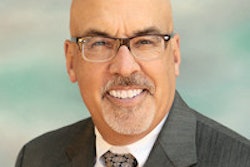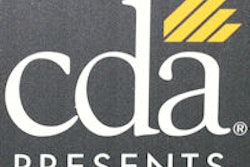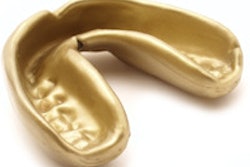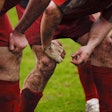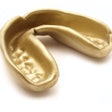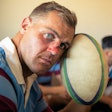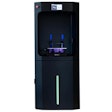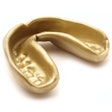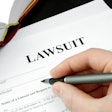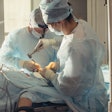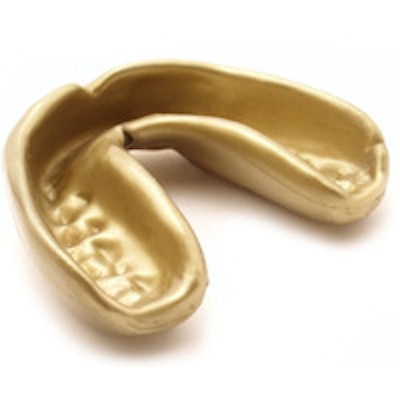
Technically speaking, mouthguards can be used for many things, but one of the most important things they can't do is protect your patients against concussions.
 Sierra Soleimani. Image courtesy of SISU.
Sierra Soleimani. Image courtesy of SISU.Many patients understand what a concussion means, especially with concussion lawsuits often in the news, but they don't understand the science behind it and, therefore, don't understand how a helmet or mouthguard will not protect them.
Inside the skull, the brain is surrounded by cerebrospinal fluid to cushion it from light impact. This fluid, however, is not enough protection against more severe head blows. So when someone gets hit in the head, the force of impact slams the brain into the skull, causing a concussion. Think of a concussion as whiplash for the brain.
Those who claim that mouthguards protect against concussions often refer to one or both of the following studies from the 1960s:
- In the Journal of the American Dental Association in 1964, Stenger et al wrote that a mouthguard would attenuate the forces to the skull reducing rates of injuries (JADA, September 1964, Vol. 69, pp. 273-281).
- In 1967, also in JADA, Hickey et al tested fixed cadaver skulls and claimed that mouthguards reduced intracranial pressure (March 1967, Vol. 74:4, pp. 735-740).
The issue with these studies is that they are nonconclusive.
The main hypothesis is that if there is a 4-mm space between your teeth, force may not travel through the jaw and to the brain. Although the studies point toward a possible effect of decreased force transfer, they did not prove that there was any decrease in concussions or brain trauma.
A comprehensive peer review of these studies was conducted in 2007 by Knapik et al in the Sports Medicine (February 2007, Vol. 37:2, pp. 117-144). They found that the evidence that mouthguards protect against concussion was "inconsistent," and "no conclusion regarding the effectiveness of mouthguards in preventing concussion can be drawn at present," they wrote. "The inconsistency among studies is problematic and makes it impossible to determine conclusively whether mouthguards reduce concussion risk at present."
Despite these facts, some marketing techniques of some mouthguard companies were apparently successful in convincing parents, coaches, and players that mouthguards can protect against concussions.
In 2012, Brain-Pad settled a case and was forced by the Federal Trade Commission (FTC) to remove claims of protective properties for concussion.
The FTC also started to crack down on mouthguard retailers that were claiming that mouthguards protect against concussions as a selling point.
"Given all of the news reports in the past few years about concussions, retailers should be vigilant in reviewing claims made for products they are selling for young athletes," said Jessica Rich, director of the FTC's Bureau of Consumer Protection, in a statement.
Actual use
So what is a mouthguard actually used for?
The purpose of the mouthguard is to protect against injuries to the oral cavity. With more than 5 million avulsed teeth a year and $500 million spent on replacing these teeth, according to Dentalcare.com, there is a real need for dental protection in sports.
As much as we wish protection against concussions was an added benefit of using a mouthguard, there is no conclusive evidence that allows us to make these claims.
Amid the concussion spotlight in football, soccer, and hockey, this topic has never been more crucial. Believing in concussion protection from mouthguards gives players a false sense of protection that could endanger them and can result in legal liability for mouthguard manufacturers.
Sierra Soleimani is a blogger and social media coordinator for the mouthguard manufacturer SISU.
The comments and observations expressed herein do not necessarily reflect the opinions of DrBicuspid.com, nor should they be construed as an endorsement or admonishment of any particular idea, vendor, or organization.




